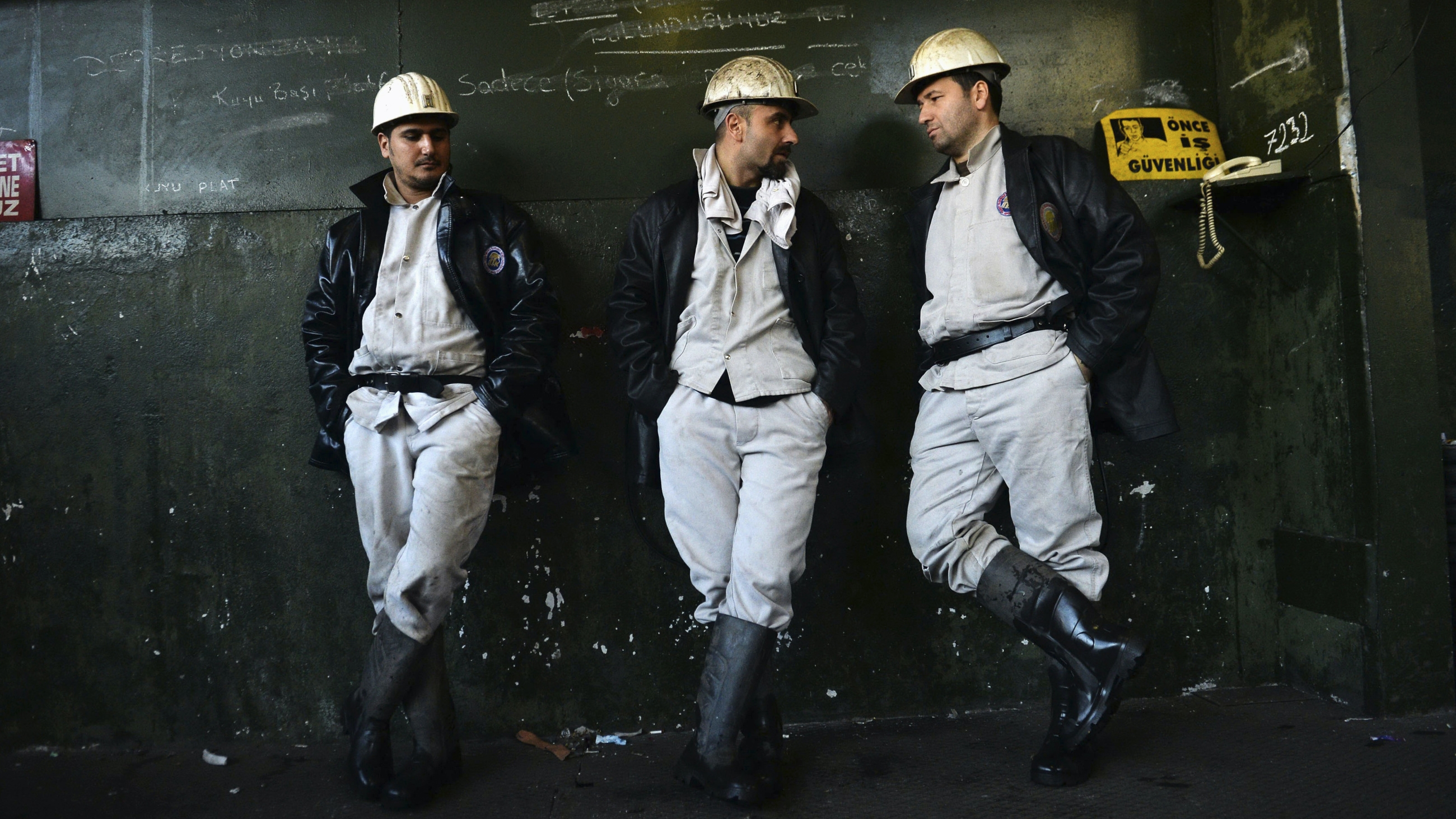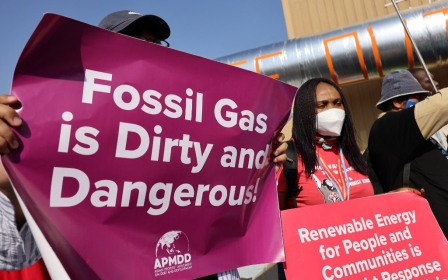Rise in European demand for energy jolts Turkey’s fading coal industry

As the ban on Russian oil kicked in earlier this month in tandem with freezing temperatures across Europe, the continent has turned to traditional, outdated energy sources to prevent extensive power shortages this winter. Despite pledges to abandon it altogether, coal is back in the mix.
France, Germany, Austria, the Netherlands and Greece are reactivating coal-fired power plants. Poland is reviving its defunct mines and even opening new ones. Meanwhile, households unable to afford more expensive heating options are firing up their coal furnaces.
But with Russian coal out of the picture, there’s just not enough of the fossil fuel on the continent to meet this rising demand. This means Europe is looking beyond its borders to buy coal in bulk, and it's shaking up an industrial sector in transition in the process.
Sales by major coal producers Indonesia, South Africa and Australia broke records this year, as did those from the 11th-largest coal producer, Turkey.
Coal exports in Turkey shot up nearly seven times this May after the European Union announced a ban on Russian coal, and nearly 12 times in August when Russia cut natural gas exports to Europe through Nord Stream 1.
New MEE newsletter: Jerusalem Dispatch
Sign up to get the latest insights and analysis on Israel-Palestine, alongside Turkey Unpacked and other MEE newsletters
These extra sales, and their knock-on effects, are jolting a sector that had been fading in Turkey, and with it prompting a supply and demand crisis.
“All of our reserves are depleted,” said Erhan Altay of the sales department of Turkish Coal Enterprises, a state-owned company that mines the majority of Turkey’s lignite coal, whose production had been scaling down over the past three years.
Hard-coal production had been declining for decades, with much of the stock left for a time when coal would be a more scarce and valuable commodity - such as this winter.
Without any reserves to resort to, Turkey is having trouble meeting rising demand. Despite lower production figures, coal has, since 2018, become the country’s major energy source, making up more than a third of all electricity generation, up from 23 percent a decade ago.
Closing the gap
Turkey has sustained this rise by importing coal that is cleaner and of a higher calorie than local variants.
But the rising European demand caused coal prices to double, pricing lower-income countries out of the market.
In Turkey, where the lira has suffered a rapid slide this year, that has meant that imported coal has become unthinkable as a cheaper energy option. Local coal, while available, has also become more expensive.
The energy crisis has seen coal mining companies and suppliers in Turkey scrambling.
Not only do they have to fill the supply gap for their regular clients - thermal power plants and the cement, iron and steel industries - but near-triple-digit inflation and soaring electricity bills have also pushed more households to resort to coal.
In some cities, demand has climbed by as much as 200 percent, according to Mahmut Kayahan, assistant secretary of the Chamber of Commerce and Industry of Zonguldak, the province that holds all of Turkey’s hard-coal reserves.
“As demand rises, we might increase production numbers by speeding up maintenance, and, for instance, going from one to three shifts,” Altay told Middle East Eye.
Even with increased productivity, they are still coming up short, he said.
Additionally, as Turkish Coal Enterprises only serves the public sector, the country depends on private mining companies to pick up the rest of the load.
These private companies, a number of which declined an interview due to their workload or corporate secrecy, are in full gear this year.
Even as they struggle to catch up with demand, some coal companies are promising to sell quantities that they are not able to meet, said the manager of a private coal wholesaler and mining company who wished to remain anonymous for professional reasons.
The manager said he is only selling the stock he has available. But if he had more, he could sell it all.
“After Covid-19, as in all sectors, there was a big gap in supply,” he said. “There is a serious restructuring going on to close that gap.”
While coal production figures had been down until this year, the Turkish energy ministry has been working on expanding mining fields to wean the electrical grid off coal imports.
Some 24 provinces have had as much of half of their land expropriated or relicensed as tenders to mining companies.
The government promises guaranteed purchases to coal companies that supply local households or industry, and priority purchases to those that don’t. It also offers subsidies and tax and customs duty exemptions.
Yet due to high costs and shifting public opinion, especially against coal-powered thermal power plants, projects have been getting tougher to see through. Of the 15 coal plants that the ministry had planned to open, almost 80 percent of their capacity has been cancelled since 2016. And only a handful of the 80 planned thermal power plants have been installed.
"[Now] when people talk about thermal power plants, it's like they're saying a bad word," Ege Tok, a campaigner against coal with 350 Turkey.
Profitable prospects
This year’s boom, though, may make investment more attractive.
'While there is a climate policy around the world that works against domestic coal mining and thermal power plants, Turkey is pushing in the opposite direction'
-Ege Tok, climate activist
Costs are increasing with inflation, but revenues are increasing even faster: coal that sold at 2,000 Turkish liras ($107) per tonne last year now sells between 4,000 and 7,000 liras, depending on its quality, Kayahan told MEE.
Hard-coal mining requires heavy machinery and plenty of personnel - costs that have multiplied this year - but companies are still earning more than last year, he said. Lignite mining, which is less costly, has been “extremely profitable" according to Kayahan.
“Most will invest it,” he said. “Where they invest the profit is left up to the manager’s initiative.”
Some mining companies are anticipating the shift in the energy transition and looking into branching out into cleaner alternatives, said Kayahan. While nothing currently binds their investments in Turkey, few private banks are willing to keep their money in the fossil fuel industry.
Turkey on the one hand wants to participate in the global transition to clean energies, yet, on the other hand, promotes domestic coal mining and seeks financing anywhere it can find it.
“There was never a well-coordinated policy,” said Tok.
Tok does not expect the current coal rush to last long since longer-term financial and political pressure is pushing private companies away from fossil fuels for good.
In 2019, E3G, an independent climate change think tank, conducted a poll that showed 86 percent of Turkish people surveyed preferred investments to be made in renewable energy, while 11 percent preferred fossil fuels.
However, with profits from fossil fuel rising and without a commitment from Ankara to exit from coal, short-term calculations might win out. And if the dirtier local coal continues to replace imported coal, the environmental and health costs will be higher.
“While there is a climate policy around the world that works against domestic coal mining and thermal power plants, Turkey is pushing in the opposite direction,” said Tok.
Middle East Eye delivers independent and unrivalled coverage and analysis of the Middle East, North Africa and beyond. To learn more about republishing this content and the associated fees, please fill out this form. More about MEE can be found here.




